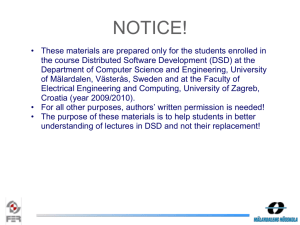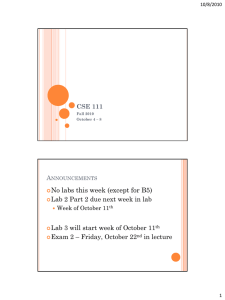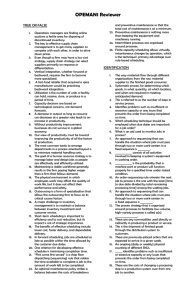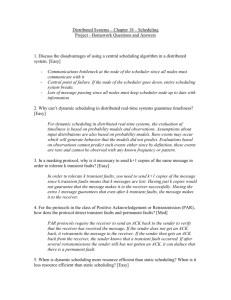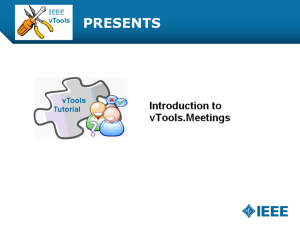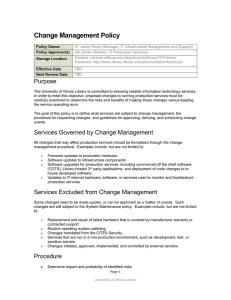Questions
advertisement
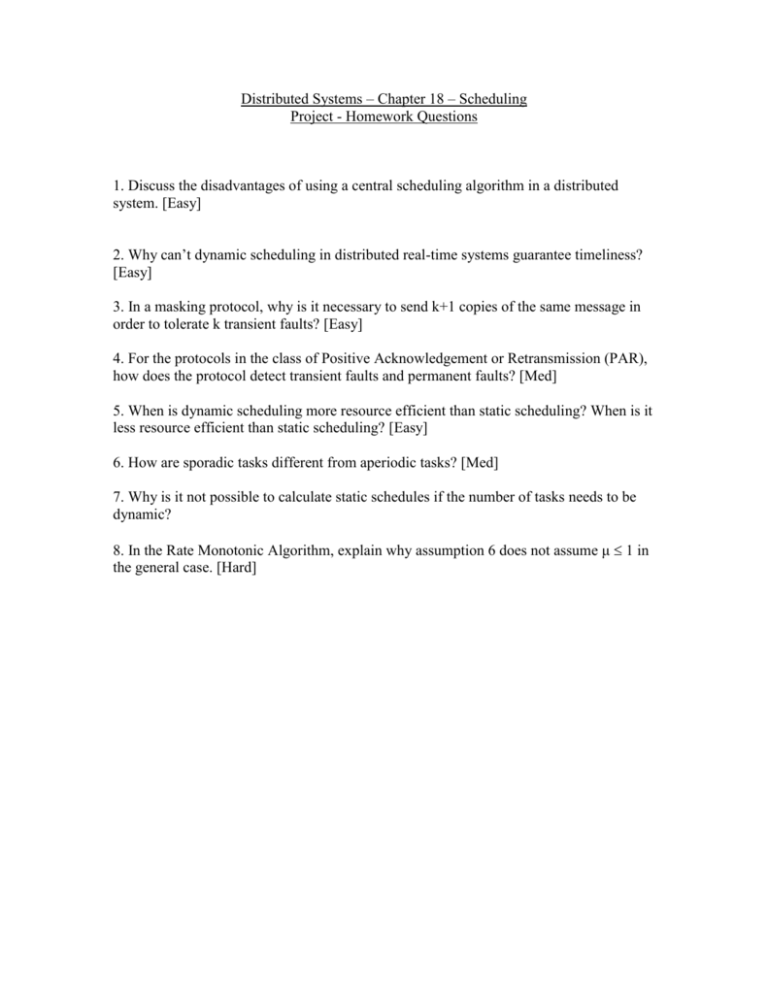
Distributed Systems – Chapter 18 – Scheduling Project - Homework Questions 1. Discuss the disadvantages of using a central scheduling algorithm in a distributed system. [Easy] 2. Why can’t dynamic scheduling in distributed real-time systems guarantee timeliness? [Easy] 3. In a masking protocol, why is it necessary to send k+1 copies of the same message in order to tolerate k transient faults? [Easy] 4. For the protocols in the class of Positive Acknowledgement or Retransmission (PAR), how does the protocol detect transient faults and permanent faults? [Med] 5. When is dynamic scheduling more resource efficient than static scheduling? When is it less resource efficient than static scheduling? [Easy] 6. How are sporadic tasks different from aperiodic tasks? [Med] 7. Why is it not possible to calculate static schedules if the number of tasks needs to be dynamic? 8. In the Rate Monotonic Algorithm, explain why assumption 6 does not assume μ 1 in the general case. [Hard]




